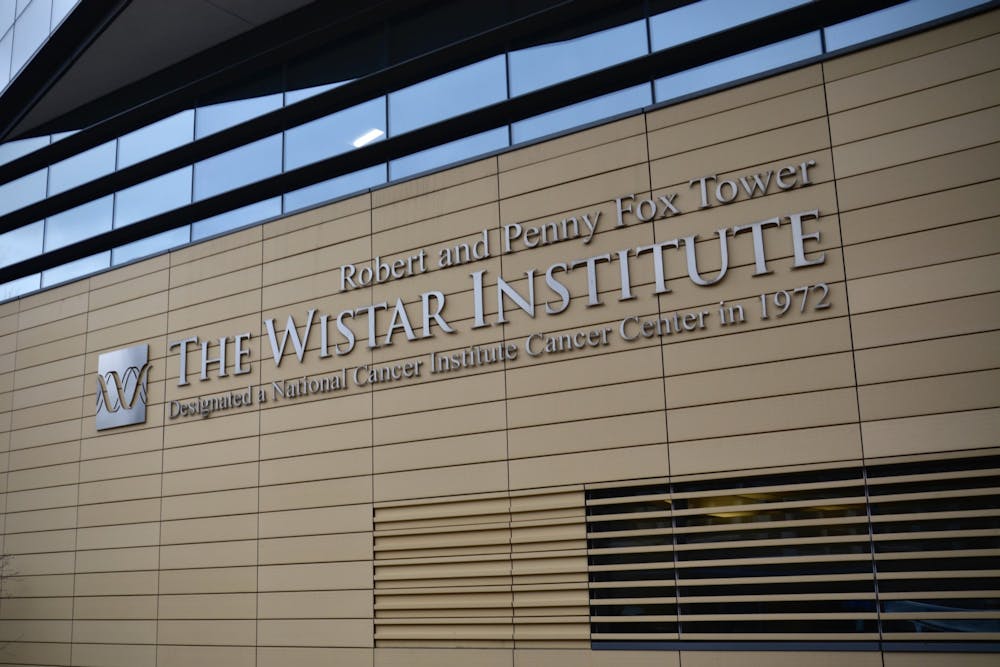
The Wistar Institute has begun human testing of its coronavirus vaccine at Penn Medicine, the second coronavirus vaccine to enter a phase one clinical study in the U.S.
The phase one trial aims to test the safety and initial immunogenicity of the vaccine, the Wistar Institute's Vaccine and Immunotherapy Center Director David Weiner said. Immunogenicity is the vaccine's ability to induce an immune response in the body.
Penn Medicine professor and principal clinical investigator of the study Pablo Tebas said he has not seen any serious side effects of the vaccine besides redness around the injection site.
The phase one clinical trial began on April 3 with a total of 40 healthy adult participants between 18 and 50 years old, Weiner said. Penn Medicine administers the vaccine to 20 of the participants while the Center for Pharmaceutical Research in Kansas City administers it to the other half, Weiner added.
Tebas said the first dose of the vaccine has been administered to all 40 participants as of Monday and participants will receive the second dose in four weeks. Participants will then receive follow-up checkups in weeks six, eight, 12, 24, 36, and 48. The team expects to have results regarding early safety and immunogenicity of the vaccine by early July, he added.
Weiner said the beginning of phase one comes 10 weeks after Coalition for Epidemic Preparedness Innovations dedicated $9 million to fund the Wistar Institute's joint effort with Pennsylvania biotech firm Inovio Pharmaceuticals to develop a vaccine.
The vaccine, based on synthetic DNA technology, is an expansion of the team’s vaccine design for Middle East Respiratory Syndrome, which resulted in close to 2,500 cases and over 850 deaths in 2012. The Wistar Institute has worked with Inovio Pharmaceuticals to develop vaccines for Ebola, Zika, and MERS in the past, Weiner said.
Weiner said phase one is slated to last for six months during which participants receive doses of the vaccine and follow-up care. Tebas added, however, if the trial continues to proceed without any issues, they will begin phase two of the clinical trials one to two months from now.
“Because the very acute and serious health problem that coronavirus represents for this country, the whole thing is accelerated,” Tebas said. “We expect to be opening the phase two trial as soon as possible."
Weiner said phase two of the trials will expand the number of participants to get a more comprehensive understanding of safety and data on whether the vaccine is interfering with virus infection.
2009 College graduate Anthony Campisi, a participant of the study, found out about the clinical trial from an email he received as a patient in the University of Pennsylvania Health System.
“I was looking at all the risks the people I know are taking every day and thought if there’s a small way I can be helpful, I definitely want to do that,” Campisi said.
Campisi said he has not experienced any negative side effects since receiving the first dose of the vaccine on April 20.
Kaiser Permanente Washington Health Research Institute in Seattle began the first clinical trial of a coronavirus vaccine in the U.S. on March 16, according to the National Institutes of Health. The trial is funded by NIH's National Institute of Allergy and Infectious Diseases.
“Finding a safe and effective vaccine to prevent infection with SARS-CoV-2 is an urgent public health priority,” NIAID Director and White House coronavirus task force member Anthony S. Fauci told NIH. “This phase one study, launched in record speed, is an important first step toward achieving that goal.”
Because of the unusual circumstance, Weiner said it is possible that the FDA Commissioner will employ an emergency use authorization for a coronavirus vaccine given the urgency of the pandemic. The EUA allows unapproved medical products to be used in an emergency to diagnose, treat, or prevent serious diseases when there are no approved alternatives.
Tebas said the decision to proceed to phase two will depend on FDA feedback and whether participants continue to tolerate the vaccine well.
“It’s so important that we develop a safe vaccine that can be administered to millions of people, particularly because of concerns that this virus will come back next winter,” Tebas said.
The Daily Pennsylvanian is an independent, student-run newspaper. Please consider making a donation to support the coverage that shapes the University. Your generosity ensures a future of strong journalism at Penn.
Donate




